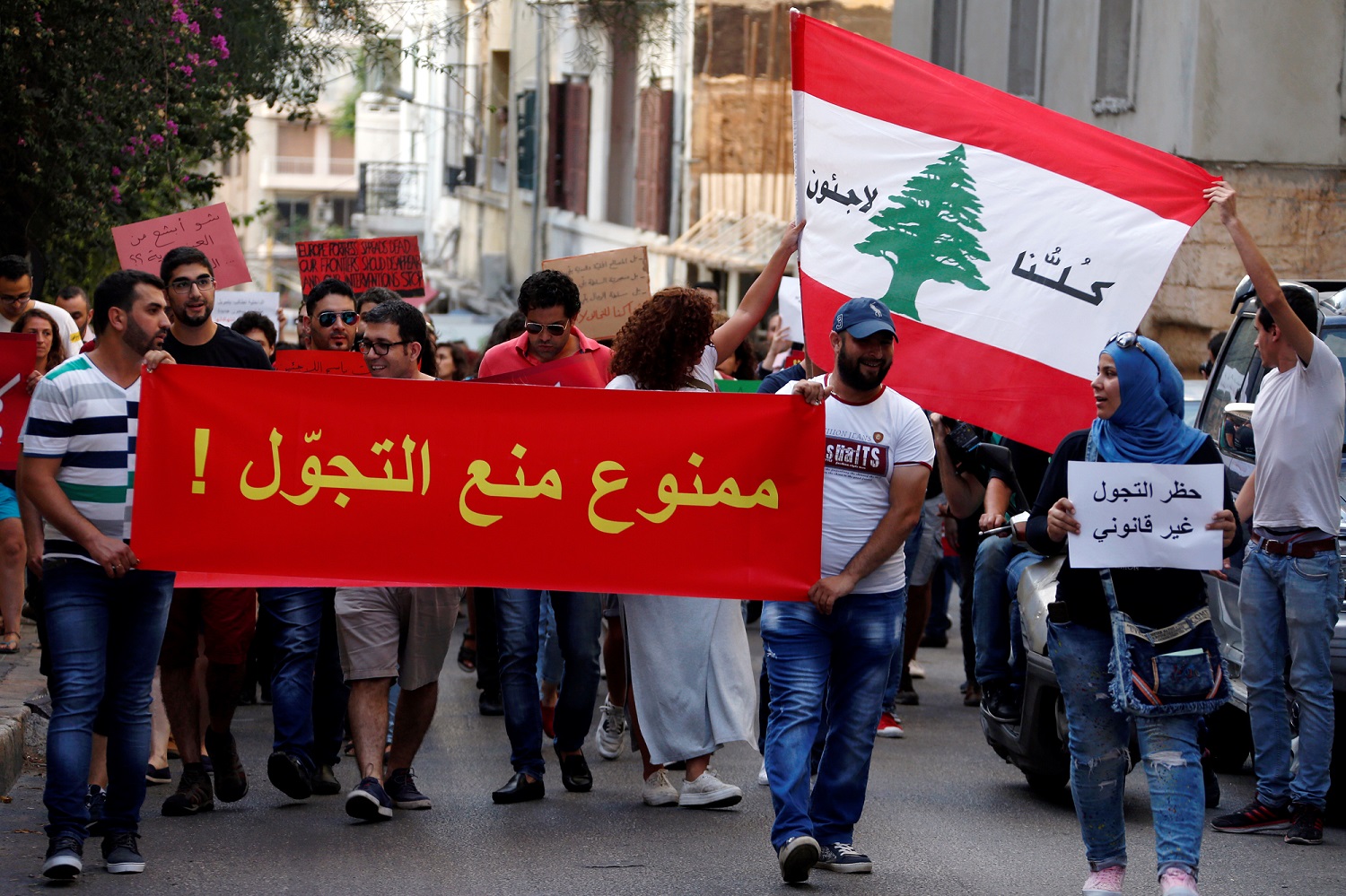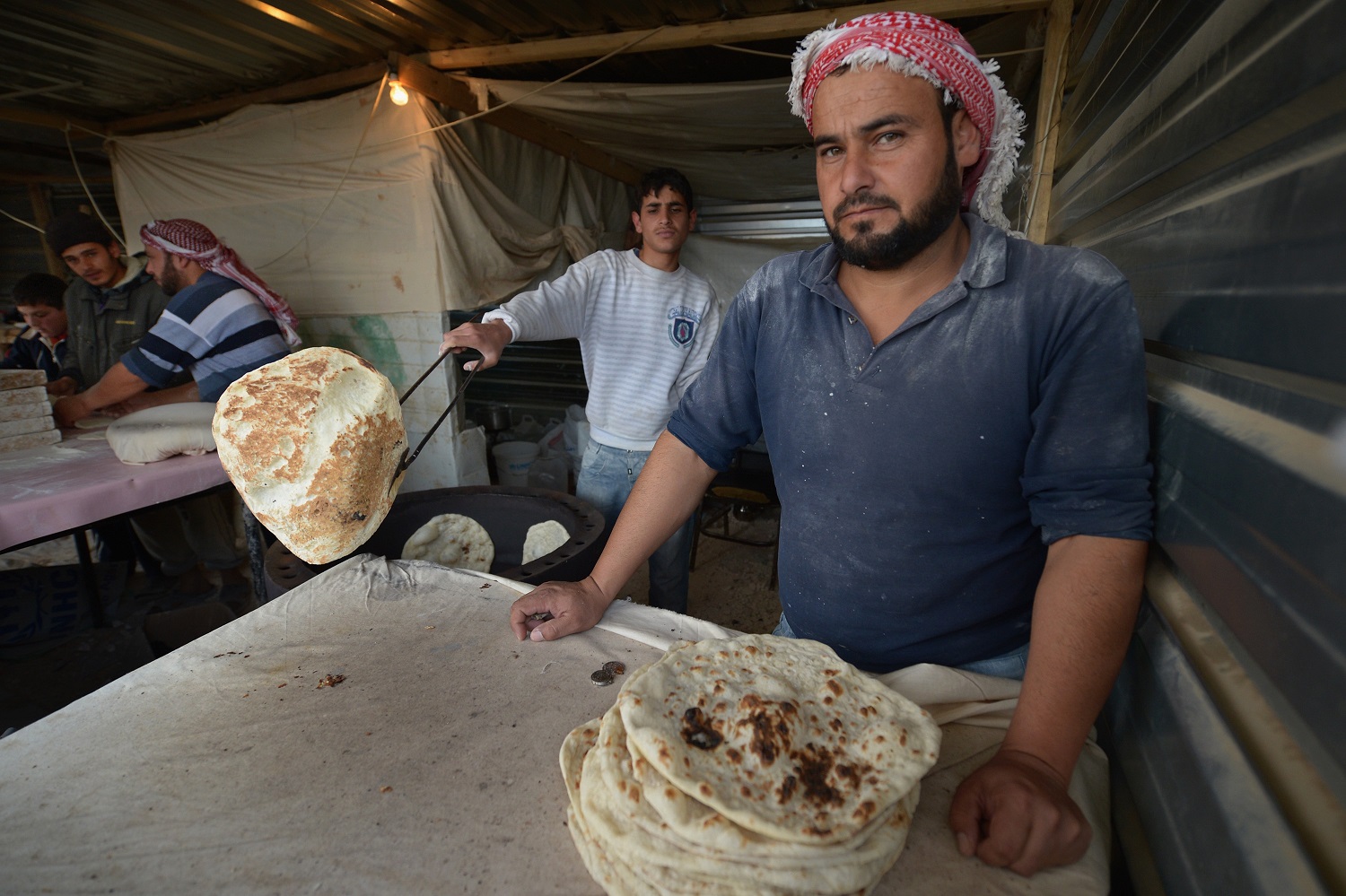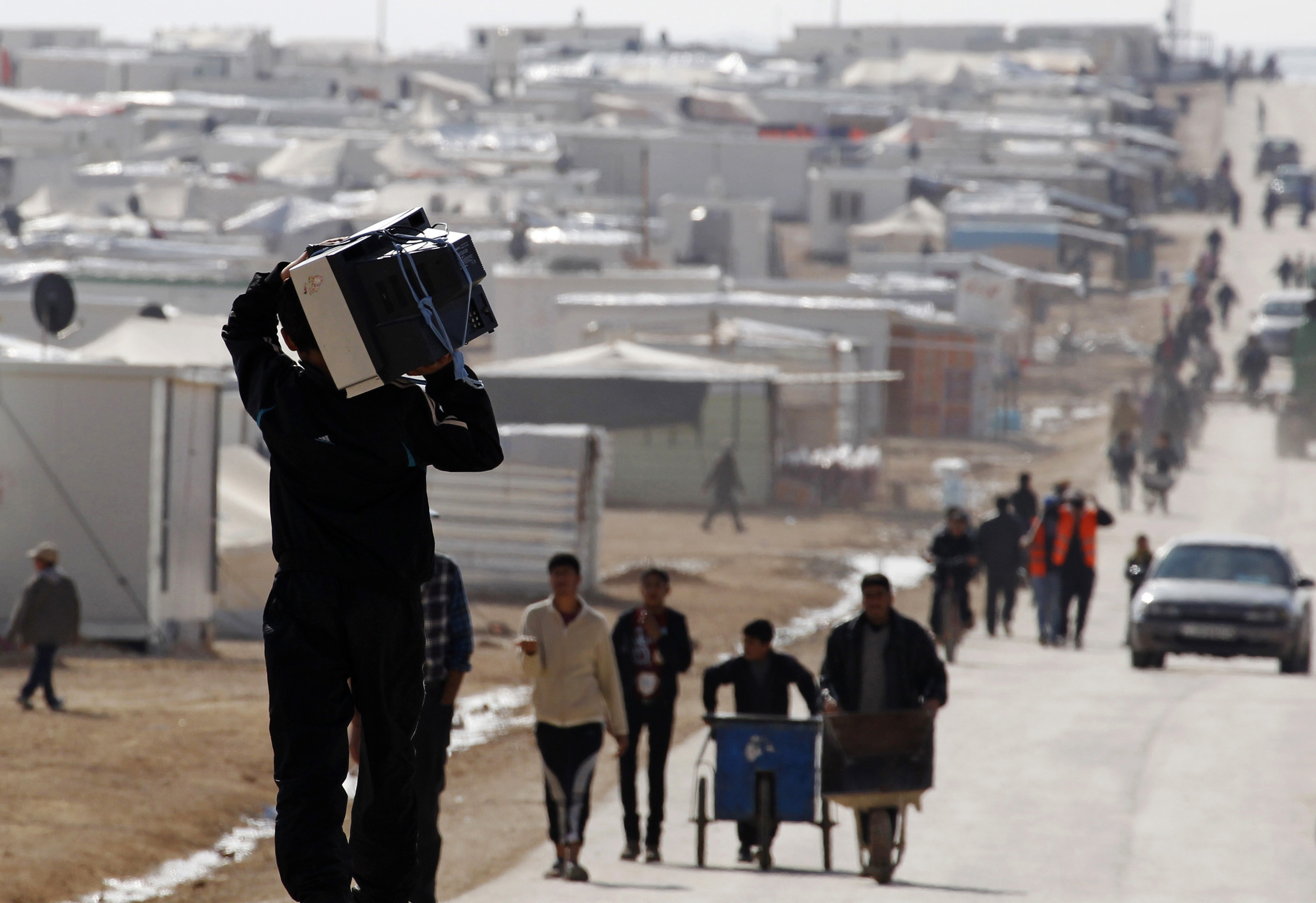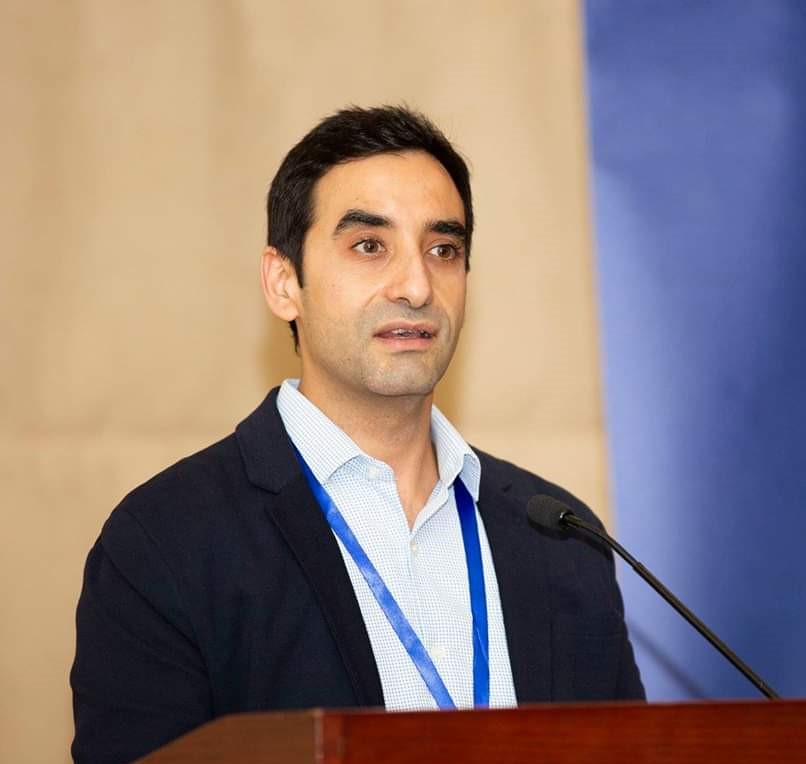"أعيدوا اللاجئين إلى ديارهم"... "بلادهم أصبحت آمنة"... "هل تؤيد عدم بيع السوريين من محالنا التجارية للتضييق عليهم؟".
هذا غيض من فيض محتوى يُنشر في وسائل إعلام عربية، غيرُ منضبط، لا يراعي المعايير الأخلاقية، يُنشر دون مسؤولية، ويضرب بعرض الحائط أخلاقيات العمل الصحفي، وأهمها الحرص على عدم إلحاق الضرر.
نستعرض في هذه المادة صورة الآخر وكيف ترسمها بعض وسائل الإعلام العربية. والمقصود بالآخر هو اللاجئ، معتمدين على تعريفه (1) بالمادة الأولى من اتفاقية المفوضية السامية لشؤون اللاجئين للعام 1951 الخاصة بوضع اللاجئين، فاللاجئ هو "الشخص الذي يوجد خارج بلد جنسيته أو بلد إقامته المعتادة، بسبب خوف له ما يبرره من التعرض للاضطهاد".
فكيف تتعامل وسائل إعلام في الأردن ولبنان (2) مع شؤون اللاجئين، وهما الدولتان العربيتان الأكثر استقبالا للاجئين السوريين منذ اندلاع الحرب هناك قبل ثماني سنوات؟
نلحظ في مواد صحفية منشورة رصدناها، انعكاسًا لتيارات باتت تُجاهر بالكراهية ضد اللاجئين، بعدما أصبحت منصات الإعلام "منبرًا حرًّا" للترويج لأفكار إقصائية تنبذ الآخر وتجرده من إنسانيته تحت مسمى حرية التعبير.
خطاب الكراهية موجود في كل المجتمعات، ونجده بوضوح في خطابات مسؤولي ومريدي التيارات المحافظة، الذين يرون في وجود اللاجئ بينهم عبئا اقتصاديا "يزاحم" أبناء بلدهم في العمل والسكن والخدمات، والسبب في التغير الديمغرافي والثقافي، فضلا عن ربط وجودهم بارتفاع نسب الجرائم والهجمات المسلحة، دون أدنى مراعاة للضرر المحتمل إلحاقه بتلك الفئة الهشة التي تهاجَم جزافا بمعول التعميم. كما أن مواقع التواصل الاجتماعي أمّنت هي الأخرى منبرا جديدا للأصوات المتطرفة لتعبر عن مواقفها المعادية للآخر، كتغريدات وزير خارجية لبنان جبران باسيل دائم التعليق على خطر وجود اللاجئين (3) الفلسطينيين والسوريين في لبنان، أو رئيس الديوان الملكي الأردني الأسبق "رياض أبو كركي" الذي دعا ذات يوم على صفحته في فيسبوك إلى "رمي اللاجئين السوريين خارج الحدود" (4). وإضافة إلى لذلك فإن وسائل الإعلام تقرر أيضا تداول تلك الخطابات، وتفرد لها المساحة لتعيد تدوير الكراهية بطرق أخرى.

لماذا اللاجئ هو السبب؟
يزاحم اللاجئ المواطن في سوق العمل، كما يذكر تقرير في جريدة "الرأي" الأردنية، باعتباره المتسبب الرئيسي في أزمة الاقتصاد ببلد يعاني الأزمة منذ سنوات خلت، وقبل الحرب في سوريا. هذا حكم نقرؤه في محتوى كثير من التغطيات، لكن أيًّا منها لا يعطينا المؤشرات، وجلها تحاول تصوير تلك الأزمات الاقتصادية في الأردن ولبنان على أنها بدأت فقط مع بداية الحرب في سوريا.
"أصحاب المنشآت العاملة في منطقة الزعتري (التي تضم مخيمات اللجوء السوري الأولى هناك) أصبحوا يفضلون العامل السوري لأنه يرضى بأجر أقل من المواطن العاطل عن العمل، مما يؤشر على زيادة في نسب البطالة بين صفوف الأردنيين وسيطرة على سوق العمل بالنسبة للاجئين". انتهى الاقتباس من خبر حمل عنوانا تحريضيا "اللاجئون في الزعتري ينافسون أهاليها على الخدمات وفرص العمل" (5) وأطلق أحكامًا دون الاستناد إلى أي دليل.
وتبقى تغطية الجرائم هي الأكثر صخبًا لدى القراء، خاصة أنها تتعامل مع نسب ومؤشرات من يصعب فهمها على القارئ، لكن بالضرورة سيكون متأثرًا باستنتاجات المحلل الصحفي الذي يُفترض أن يكون مؤتمنا على نقل ما وراء الأرقام بموضوعية.
في العام 2014 نشرت صحيفة "النهار" اللبنانية تقريراً (6) عن ارتفاع معدل الجرائم في لبنان، ينسب لما أسماها "مؤشرات وتحليلات" تشير إلى أن الوجود السوري "الكثيف" على الأراضي اللبنانية، هو أحد الأسباب التي أوصلت ارتفاع الجريمة إلى هذه النسب، ليخلص القارئ إلى فكرة أن "السوريين زادوا من نسبة الجرائم في لبنان" دون أي ربط واضح ومنطقي يبرر ادعاءات التقرير.
والجريمة الكاملة الأركان وبكل معلوماتها ستكون متوفرة في التغطيات التلفزيونية، حيث تفرد مساحة لهوية الجاني وجنسيته بصورة لا تقل خطورة عن الجرم نفسه، فالتحريض على الكراهية سيشمل كل من يحمل ذات الجنسية. في تقرير تلفزيوني على قناة "أو.تي.في" (OTV) اللبنانية، تحدثت معدة ومقدمة التقرير (7) عن جريمة قتل ارتكبها "لبناني سوري" بحق "لبناني أرمني". وهنا يُطرح سؤال حول الغاية من ذكر الجنسية؟ وما القيمة الصحفية التي أضافها التقرير بذكره لجنسية المجرم؟
جريدة "الرأي" الرسمية الأردنية نشرت في تقرير (8) لها عن أزمة الضغط السكاني في مدينة المفرق التي يقع بداخلها مخيم الزعتري، أن التعداد السكاني للسوريين أثر على البنية التحتية للمنطقة، وأن اللاجئين ينافسون المواطنين في فرص العمل. هذا هو الاستنتاج الذي خرج به التقرير بعدما اكتفى بتصريح رسمي ينطوي على تعميم وشهادات بعض المواطنين، دون عرض أي رأي لخبراء أو التواصل مع المنظمات الداعمة لتبيان مكان وسبب القصور إن وجد. بل على العكس، ذهبت الصحيفة لتضع عنوانا فيه تعميم يتهم السوريين بأنهم سبب أزمات المدينة.
تعميم الخطأ جريمة
اتهام اللاجئين دائما باعتبارهم المتسبب الرئيسي لمشاكل المجتمع، وتعميم الأخطاء، واستمرارية النشر حول ذات الموضوع، كل ذلك يشكل انتهاكا بارزا بحق اللاجئين، ويسهم في تعميم الكراهية والتحريض ضدهم بشكل يؤثر على السلم المجتمعي للبلد المستضيف، ويخالف المعايير الأساسية للصحافة الموضوعية المهنية.
الخبير في حقوق الإنسان فادي القاضي يوضح في مدونته (9) الخاصة بسلوك الصحفيين في مجال مراعاة وإدماج معايير حقوق الإنسان في العمل الصحفي، أن "الصحفيين يسعون إلى عدم إلحاق الضرر بأشخاص تم انتهاك حقوقهم سلفًا، من خلال عدم إظهارهم بأي حال من الأحوال، وعدم اعتبارهم مجرد أطراف في نزاعات أو خلافات، أو تقديمهم في سياق مجحف بقصد النيل منهم". هذا التناول الذي يركز في كل فرصة على وصم اللاجئين بكونهم عبئا أدى إلى أزمات اقتصادية وأمنية واجتماعية وغيرها، يجعل حالة الرهاب من الأجانب (اللاجئين في هذه الحالة) نتيجة حتمية.
هل هناك قيمة لجنسية المجرم؟
تكتسب جنسية المجرم في جريمة ما، قيمة إخبارية لدى بعض وسائل الإعلام، ويتم ذكرها مباشرة في عناوين الأخبار، كمادة صحفية دسمة جاذبة للقراء. فعلى سبيل المثال، نشر الموقع الإلكتروني التابع لقناة "رؤيا" الأردنية خبرا حمل العنوان التالي "لاجئ سوري يقتل زوجته بوحشية ويدفنها داخل مغارة بالمفرق" (10)، لتصبح جنسية مرتكب الجريمة هي الخبر. وفي مثال أوضح، نرصد أن جنسيات القاتل والمقتول هي الحدث، وفي العنوان الأبرز في موقع شبكة "رؤية" الإخبارية: "سوري يقتل زميله السوداني و5 جرائم قتل في يومين" (11).
تتفاوت التغطيات الصحفية للجرائم المرتكبة من قبل اللاجئين مقابل المواطنين، لكن قد تتخذ أخبار اللاجئين "جاذبية" تعتقدها بعض وسائل الإعلام، أو ما يُطلق عله ضمن المقاربة التجارية للإعلام تسمية "خبر بيّاع"، لتغذي تلك الأخبار كراهية من يرون أن وجود اللاجئين يشكل خطرا على مجتمعهم. كما أن التركيز على أخبار الجرائم أو الانتهاكات، أصبح في كثير من الأحيان مرتبطا بجنسية مرتكبيها، فكثير من الجرائم التي يرتكبها مواطنون لا يتم تناولها بشكل بارز في الإعلام، بينما تجد تركيزا أكبر على جرائم مماثلة أو أقل خطورة يرتكبها لاجئون أو مهاجرون من جنسية معينة.
هذه الانتقائية في التعامل مع الأخبار تشكل تجليا لازدواجية في المعايير تمارسها وسائل الإعلام، عندما يتعلق الأمر بذكر جنسية مرتكبي الجرائم في موادها المنشورة، فالحق في المعلومة وبكاملها جيد للصحفي، لكنه ليس جيدا عند نشرها بمقاربة تجعل تلك المادة مدخلا لانتهاك محتمل بحق لاجئين أو أفراد آخرين يحملون ذات الجنسية، انطلاقا "من باب تجنب جعل الضحية ضحية مرتين".
هل يعدّ حامل جنسية محددة لاجئا بالضرورة؟
يخلط الإعلام بين اللاجئ والمهاجر، لا سيما إن كان الطرفان يحملان نفس الجنسية، غير أن الوضع القانوني لكل منهما داخل بلد اللجوء/الهجرة يختلف حسب طبيعة الدخول والوجود في البلد المضيف. فاللاجئ خرج من بلده هربا من الحرب، والمهاجر خرج من بلده بحثا عن فرصة عمل لتحسين وضعه الاقتصادي. لذا على الصحفيين الالتزام بما أوردته المواثيق والعهود الدولية من تعريفات وخصائص للاجئ مقارنة بالمهاجر، وخصوصية كل طرف ونوعية التحديات التي يواجهها. إلا أن الواقع يدلل على أنهما يتلقيان ذات المعاملة فيما يتعرضان له من تنميط سلبي في الإعلام عبر التعميم الممارس تجاه جنسية بأكملها في عدد من المواد الصحفية.

خلط الحقائق
تخلط وسائل إعلام بين المهاجرين لأسباب اقتصادية وبين اللاجئين، في حين يُساء التعبير عنهما ويُربط في ذهن القارئ بأن اللاجئ بالضرورة من يحمل الجنسية كذا، وأن المهاجر هو القادم من تلك الدولة (12). المؤكد أن كلتا الفئتين تواجه "الشيطنة" من ناحية التعامل مع وجودهما من حيث الأثر الديموغرافي، وفي سوق العمل والفرص، والضغط على البنية التحتية. عمومًا، فإن التغطيات المتعلقة بالجرائم هي أبرز ما يمكن استحضاره، فعامل من جنسية كذا اغتصب طفلة، أو عاملة من الجنسية كذا قتلت كفيلتها، بينما يتم التعامل مع كل جنسية وفق توقع المحرر بحالته القانونية غير الدقيقة.
المؤكد أن ثمة حقائق أسقطت، وصوت الضحية لا يُسمع في كثير من وسائل الإعلام، ويكتفي كثير من الصحفيين برواية السلطات، فتفقد القصة الصحفية فرصة إبراز جميع الآراء، وليس أقلُها فرصة عرض وتوثيق الانتهاكات بحق تلك الفئات.
ويظهر لنا من ذلك كله رهاب من الآخر الأجنبي، ذلك الذي "يسبب المشكلات" في فكرهم و"يؤثر سلبا على ثقافة وعادات المجتمع"، وهذا سيُمهّد لارتفاع احتمالية تعرض تلك الفئات للنبذ المجتمعي، والحيلولة دون اندماجهم مع المجتمع المضيف، ومزيد من دوران عجلة الكراهية التي كان قد أشعل فتيلها ذلك التقرير الصحفي.
ينبغي على غرف الأخبار إلزام صحفييها وخطها التحريري بمدونات أخلاق وسلوك، تقوّم آليات التعامل مع الموضوعات الصحفية بمهنية ومسؤولية. لكن، هل يعتبر العاملون في غرف الأخبار حقا أن نشر مادة صحفية غير منصفة معضلة تؤرقهم، أم أنهم غير مدركين لما قد يحدث من ردات فعل عدائية تجاه الفئات التي يمارس ضدها تمييز في التغطية واحتمالية لنزعات كراهية؟
إيجابيات اللجوء.. صفحة مفقودة في الإعلام
لماذا يتغافل الإعلام العربي عن نشر قصص تبرز إيجابيات اللجوء؟ تجيبنا الصحفية السورية بهية مارديني بأن الحكومات "تتهرب من الحديث عن الفقر واللجوء الاقتصادي، وتحاول أجهزتها الإعلامية ربط قضايا اللاجئين بالسياسة".
تدرك مارديني أن للخط التحريري دورا في معاجلة قضايا اللاجئين صحفيًّا، وتقول "عادة ما يتم تصوير اللاجئ على أنه إنسان منبوذ وضائع يعجز عن تكوين حياته في بلد آخر".
تستمد بعض سياسات التحرير توجهات الحكومة، أو الأجهزة الأمنية، أو تيارات محافظة قد يكون لها أثر في توجيه بوصلة التغطيات الصحفية بصورة غير منصفة للاجئين، فصاحب الانتماء إلى أيدولوجية ما، قد يرى في وجودهم تهديدًا لقيم مجتمعه، وبالضرورة سيحرف التغطيات الصحفية لصالح التركيز على الأثر السلبي لوجودهم، أمنيا واقتصاديا في المقام الأول، ثم ثقافيا. كما يبقى الإعلام الخاص أسيرًا لأجندة المالك الذي قد لا يشذ -غالبا- عن سياسات حكومته، أو ببساطة ينزلق إلى شعبوية خطاب كاره للآخر؛ لأجل مصالحه الاقتصادية، كمزيد من الإعلانات وبالتالي الحصول على مال أكثر.
صورة المقال: محمد حامد - رويترز
المراجع:
-
تعريف اللاجئ بالمادة الأولى من اتفاقية عام 1951 الخاصة بوضع اللاجئين، موقع المفوضية السامية لشؤون اللاجئين https://www.unhcr.org/ar/4be7cc27201.html
-
نسب تواجد اللاجئين في كل من الأردن ولبنان ووثائقهم مقيدة لدى سجلات المفوضية السامية لشؤون اللاجئين: الأردن https://www.unhcr.org/ar/4be7cc278c8.html لبنان https://www.unhcr.org/ar/4be7cc278c2.html
-
https://arij.net/wp-content/uploads/2018/08/JHR-Code-of-Conduct-HR.pdf








































